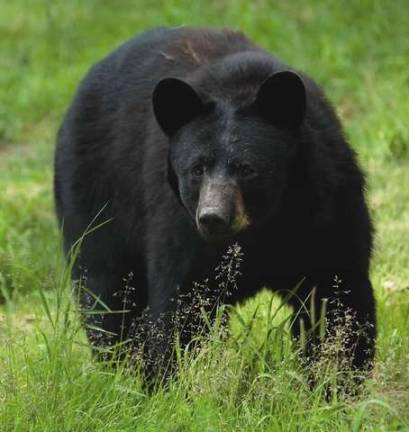NEWTON – More bears were killed on the first day of hunting season this year compared to 2017, despite protests by a number of animal rights and environmental groups and a ban by Gov. Phil Murphy prohibiting hunting on state owned lands.
In opposing the annual hunt, the Sierra Club said that 36 bears were killed on the first day of the season Oct. 8, more than were taken last year.
“The numbers show more bears were killed on the hunt’s first day this year than last year. This proves our point that we’ve only privatized the bear hunt with the state-land ban. We’ve said all along that the same number of bears will get killed. Therefore, Murphy’s policy has been a failure. When running for governor, Murphy promised to put a moratorium on the bear hunt until a thorough bear management plan could be put in place. He broke his promise and now just as many bears are being killed on his watch,” Jeff Tittel, director of the New Jersey Sierra Club said in a press release Tuesday. “This state-land ban is nothing but a publicity stunt and is doing nothing to reduce the number of bears being killed. Will Murphy stop the hunt in December or next year or in four years? If we wait too long, there might be no more bears left. This is now Murphy’s hunt and these bears are being killed under his watch because he broke his commitment and promises.”
The Sierra Club joined several other organizations in Newton to protest the first day of the hunt on Monday.
According to the organization, Gov. Murphy’s ban encompasses about 700,000 acres statewide, but still allows the hunt on about an equal number of county, municipal, non-profit, water company and private lands.
The state offered 11,000 bear hunting permits in 2018, the same number as issued in 2017.
The Sierra Club fears that the hunt this year, as well as last year’s hunt, would “decimate” the bear population to “unsafe population numbers.”
According to the club, the state reduced its $2 million bear management education funding by around 90 percent last year.
The issue recently came up during a West Milford Township Council meeting with a number of residents expressing support for the hunt due to an increase in the number of bear sightings in the township.
According to that town’s officials, the state relocates a large number of bears to the municipality when they are caught elsewhere in the state.
